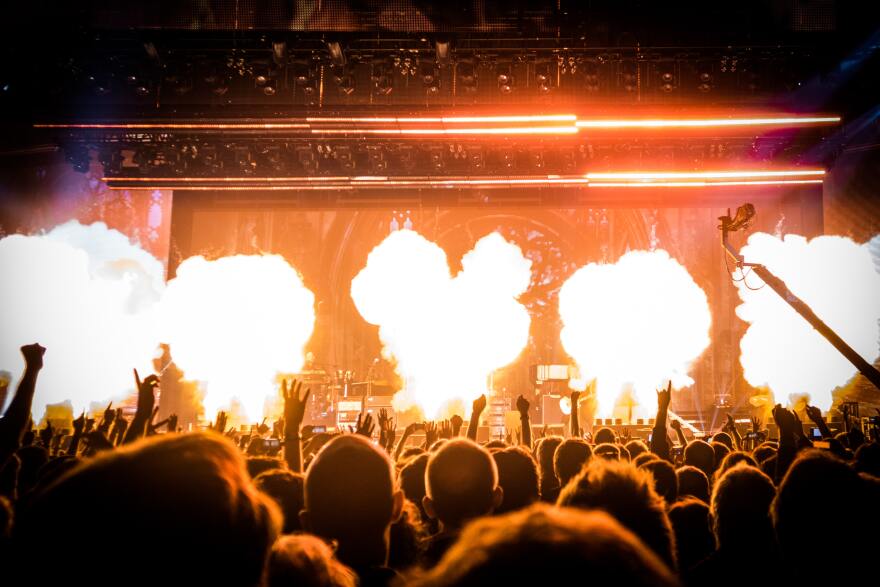Author Marc Myers describes rock concerts as a generational event and also as "a right of passage."
"You went in as a kid and came out a young adult," Myers said.
It's what led him to investigate the evolution of these productions for his latest book "Rock Concert: An Oral History as Told by the Artists, Backstage Insiders, and Fans Who Were There."
Myers points to Allen Freed as a man who played a big role with the first rock concert in New York at the Brooklyn Paramount Theater.
Freed's concerts lasted for days and gave attendees the opportunity to see the artists they loved from the radio performing live, over and over again.
When Elvis Presley hit the scene, he combined the artistry of rock and R&B with a performance style and looks that were appealing to women.
"It's really the beginning of true female ecstasy over a male star," Myers said.
The author was purposeful when collecting interviews about Elvis, specifically wanting the perspectives of three women who were close to the star: Barbara Hearn who had dated Elvis in high school and in the early days of his career; Elvis' touring partner for two years, Wanda Jackson who would go on to become the Queen of Rockabilly; and Kay Wheeler who formed the first national Elvis Presley fan club.
"You really get a feel through these three women about how the temperature rises and about how he conducted himself as an artist," the author said.
Prior to 1964, there weren't organized tours and ticket prices were small change, according to Myers
Myers pointed out that it was when concert promoters saw images of performers at the March on Washington in 1963 that a new vision for the rock concert was born, leading to stadium tours.
The Beatles took the stage at Shea Stadium in 1965 and showed how wildly successful the right artist and the right music could be.
Their concerts also showed a need for improvements to enhance the concertgoers experience.
"People who say they went to see The Beatles are accurate. Anybody who says they went to hear The Beatles are lying to you," Myers said.
The screaming of the crowd at Beatles' concerts proved the need for better sound systems, which appeared at Woodstock.
Marc Myers' traces the history of rock concerts through 1985 when he says the industry changed.
"After Live Aid, rock takes a turn," Myers says citing growing corporate involvement and increasing ticket prices.
When it comes to current concerts the big artists are mostly female pop singers and "rock today is almost meaningless," Myers said.








